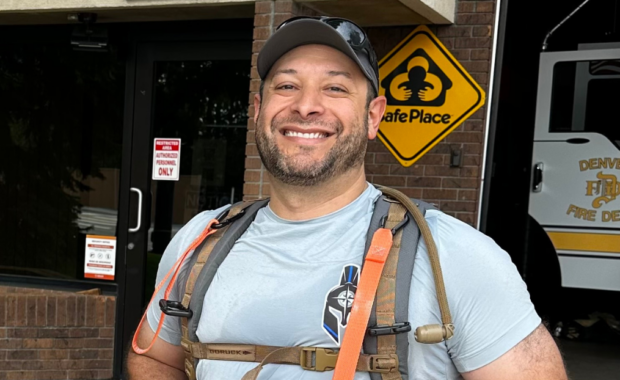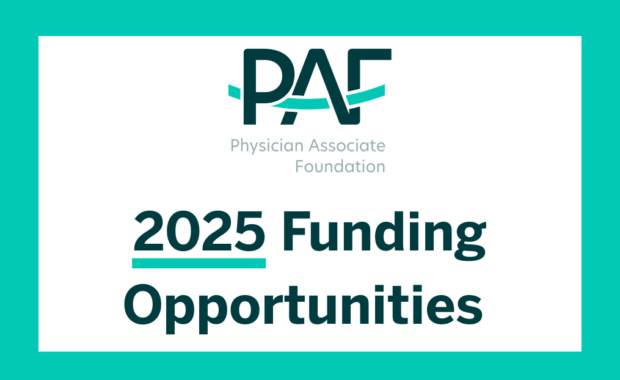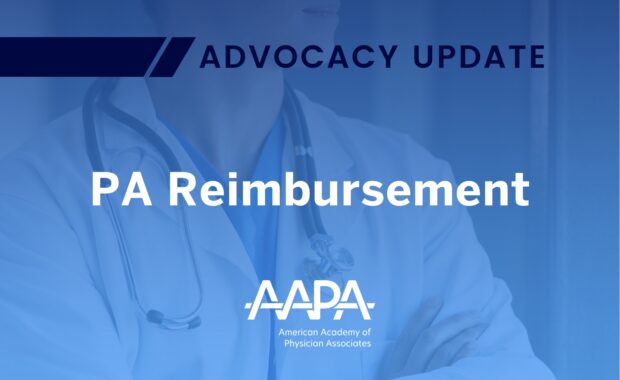New DEA Requirement for Registered Practitioners to Complete SUD, OUD Training to Take Effect June 27
PAs May Apply Past AAPA Training, Access Accredited Training Via AAPA’s Learning Central
June 9, 2023
As part of a large end-of-year spending agreement, Congress passed a law that requires all Drug Enforcement Administration (DEA)-registered practitioners to meet a one-time, eight-hour training requirement on the treatment and management of patients with opioid or other substance use disorders. The requirement takes effect on June 27, 2023.
What PAs Should Know About the Requirement
- “New” training will not necessarily be required; rather, as stated in the law and DEA notification to registered practitioners, previous and existing training provided by AAPA and other organizations can satisfy the requirement.
- Once the required training is completed, it never has to be repeated. It is a one-time training attestation that will not be a part of future registration renewal.
- Practitioners are not required to supply “proof” of training. They are required to check a box on their online DEA registration form when they renew their registration.
- Practitioners are not required to verify they have completed training until their registration is due for renewal.
- The required 8 hours of training does not have to be completed in one session; it can be multiple sessions that total eight hours.
- SAMHSA recommends that training content should be related to the prevention, recognition and care of people with substance use disorders including those with concurrent pain and/or psychiatric and medical co-morbidities.
AAPA has prepared the FAQ below about the requirement to provide PAs with additional details and guidance. Should you have further questions, please contact [email protected]. Questions about the training may also be submitted to [email protected] or [email protected].
DEA Training FAQ
All PAs registered or seeking registration with the DEA.
The new DEA-mandated requirement is a one-time, eight-hour training on the treatment and management of patients with opioid or other substance use disorders.
The new requirement begins on June 27, 2023.
PAs are required to attest that they have completed the required training via a check box on their online DEA registration form during initial registration or registration renewal.
This training must be completed prior to the PA’s next scheduled DEA registration submission (initial or renewal). Once satisfied, the question regarding training will not be part of future registrations as this is a one-time requirement.
Some PAs may have already satisfied this training requirement, for example:
- PAs that graduated in good standing from a PA school in the U.S. within the past five years of their DEA registration or renewal and successfully completed a comprehensive curriculum that included at least eight hours of training on treating and managing patients with opioid or other substance use disorders, including the appropriate clinical use of all drugs approved by the Food and Drug Administration for the treatment of a substance use disorder have met the requirement.
- PAs who have completed a previous 24-hour waiver training, the American Society of Addiction Medicine (ASAM) Treatment of Opioid Use Disorder Course, or the ASAM 16-Hour Medications for Opioid Use Disorder Course have met the requirement.
PAs who need to satisfy the requirement can do so my engaging in content that will satisfy the eight hours of training on treatment and management of patients with opioid or other substance use disorders. Training is available and offered in AAPA’s Learning Central in the Substance and Opioid Use Disorder Training .
This training does not have to be completed in one session or course; it can be completed over multiple sessions or courses that total eight hours.
Previously completed trainings approved by AAPA or one of the other organizations named in the statute and DEA letter on treatment and management of patients with opioid or another substance use disorder may count toward the requirement, including past DATA-waiver trainings. There is no limitation on how long ago acceptable trainings may have been completed.
If the eight hours of training were completed before the enactment of this new training requirement on December 29, 2022 – the training will count toward the requirement. The only time constraint listed is completing PA school in the U.S. within the past five years with a completed comprehensive curriculum as noted above.
There is one course in AAPA’s Learning Central Catalog that will satisfy the full requirement.
- This series is completed in AAPA’s Learning Central and the certificate can be found on your transcript in Learning Central.
This document lists sessions from past AAPA Annual Conferences, Adult Hospital Medicine Boot Camps, and We Are Family (Medicine) conferences over the last five years including live, virtual, and on demand products that count towards satisfying the new DEA requirement.
PAs can contact AAPA at [email protected] with any questions, and we will be happy to assist.
PAs can navigate to cme.aapa.org and view their Transcript in Learning Central or navigate to paportfolio.aapa.org to view their records in PA Portfolio.
At this time, DEA has not communicated any details regarding any intent to audit PAs who indicate they have satisfied this requirement. However, as a best practice, AAPA encourages PAs to maintain documentation and CME certificates of associated training that have completed.


